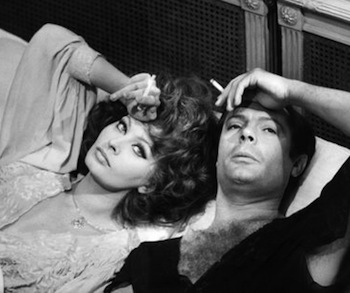
I was once at a late summer party in San Francisco in a group of people very much identified with sex-positivity. A man I didn’t know began talking to me and he looked around the room and said, “You know, I have slept with all but 3 of the women here.” Since I was included in that three, I can speculate where the conversation might have gone next. But since he didn’t know he was talking to a sex therapist, he seemed surprised by my response. I turned to look at him and I genuinely asked, “Wow. What did you learn about yourself from all that sex?” I didn’t mean to fluster or embarrass him; I was asking openly. But he became very uncomfortable, laughed it off with, “I learned I like sex” and immediately walked away. But I wish he had at least tried to engage with the question. Because I really did want to know.
The thing is I think a lot of us, no matter how sex positive or not, are not asking our self that question – what has sex taught me about ME? And so, are not allowing sex to work its real magic on us.
Sexuality is not simply a check-list of things we can do. It is not simply a way to prove ourselves viable as an object of desire. It is not to find what category you belong in or who you belong with. It is not just to prove that we can please someone else or that we can have multiple orgasms or that we can commit to one person or commit to four people or that we can be brave or express resistance to old cultural conditioning. It can be all these things at different times. But it can also be an incredible path to self-awareness.
Does that sound too heavy to you? It really doesn’t have to be.
What I am suggesting is that we bring our own sexuality into its rightful place on our list of “things that give us information about our Self”. It should also be on the lists : “things that will change through the course of my life with or without my permission, “things that are different in real life than in entertainment” and “things that might, when I least expect it, confuse the crap out of me”. You have those lists, right?
But really, it is ok - good even - to take a moment after sex to ask yourself, “How was that for me? What did I feel, discover, want more of? What did I find in myself that I may not have found before?” It is not so much that our partners are our teachers, although they may be, but that HOW WE RESPOND to different people, different moods, different environments, that can teach us.
Expanding our awareness through sex is an inside job. External variables are catalysts, but the combustion happens within you, in the way you open yourself up to something, or don’t. And this exploration creates the power within you to bring your own passion and pleasure to the party. It can even give you insight in to spiritual questions, inter-connectedness, personal needs and archetypes, nature, flow states, and so much more. Let sex feed you, inform you, inspire you. And then maybe, some summer, we can have some stimulating party talk.